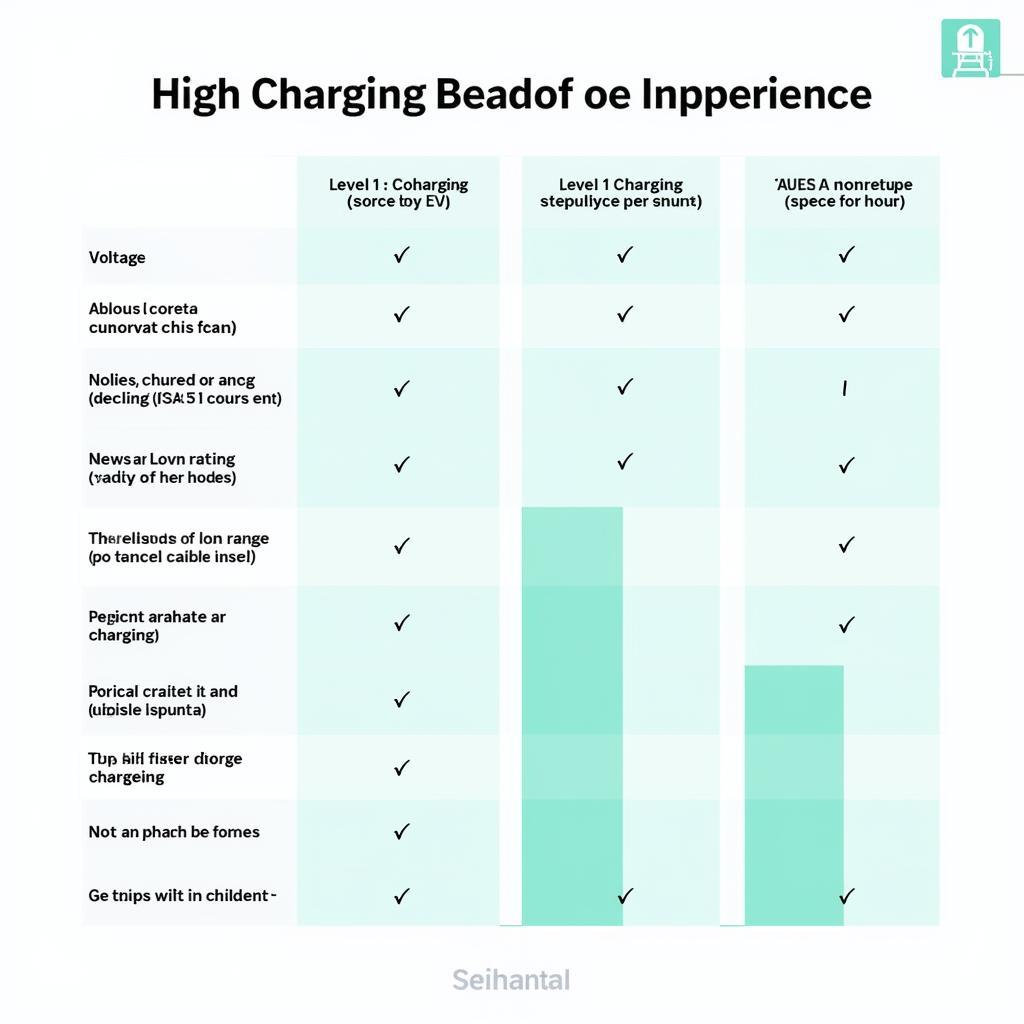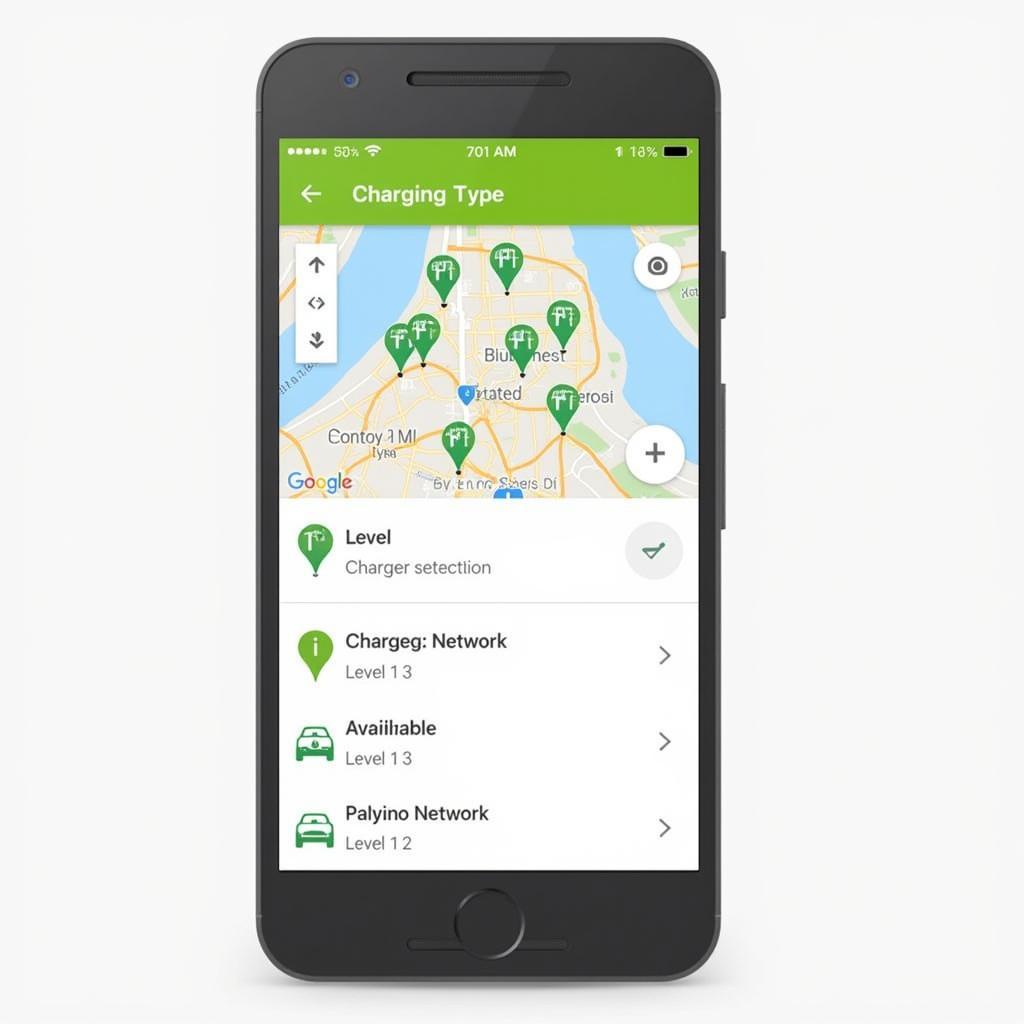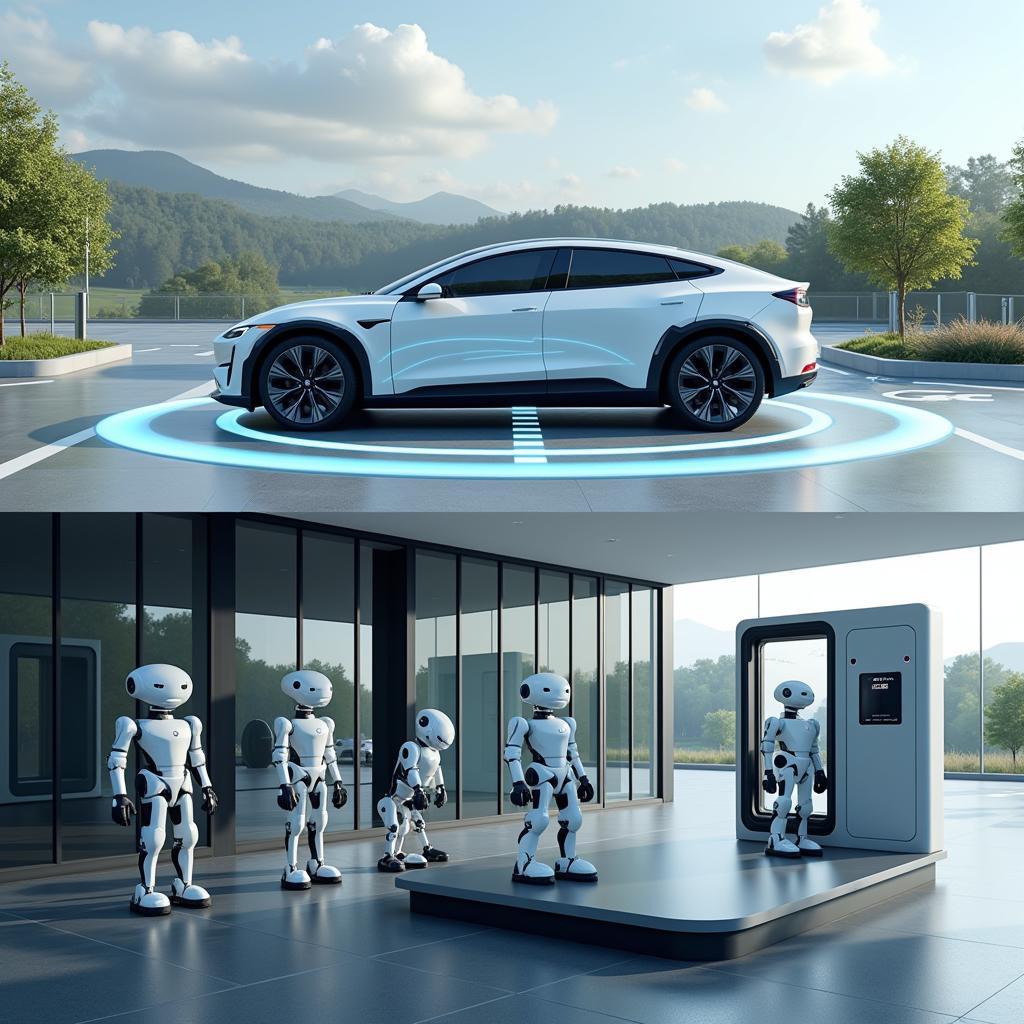Electric cars are becoming increasingly popular, and with that comes a growing demand for charging stations. Understanding the landscape of electric cars charging stations is crucial for both current and prospective EV owners. This guide will explore everything you need to know about charging your electric vehicle, from the different types of chargers available to finding charging stations near you and understanding the costs involved.
Are you ready to delve into the world of EV charging? Let’s get started. You might also be interested in finding charging stations for electric cars near me.
Types of Electric Cars Charging Stations
There are three main levels of EV charging: Level 1, Level 2, and Level 3 (DC fast charging). Each level offers different charging speeds and is suited for different situations.
Level 1 Charging
Level 1 charging uses a standard 120-volt household outlet. It’s the slowest charging option, providing about 2-5 miles of range per hour. While convenient for overnight charging at home, it’s not ideal for quickly topping up your battery.
Level 2 Charging
Level 2 charging uses a 240-volt outlet, similar to the one used for a clothes dryer. It provides a significantly faster charge than Level 1, adding 10-60 miles of range per hour. Level 2 chargers are commonly found in homes, workplaces, and public charging stations.
Level 3 Charging (DC Fast Charging)
Level 3 charging, also known as DC fast charging, uses a 480-volt connection and can add up to 80% charge in as little as 20 minutes. These chargers are typically found along highways and are ideal for long trips. However, not all EVs are compatible with DC fast charging.
 Comparing Level 1, 2, and 3 EV Charging
Comparing Level 1, 2, and 3 EV Charging
Finding Electric Cars Charging Stations
Locating charging stations has become easier than ever thanks to numerous apps and websites. These resources provide real-time information on charger availability, pricing, and connector types. Some popular options include PlugShare, ChargePoint, and EVgo. For those curious about charging options in Bermuda, check out where can i charge a yoyo electric car in bermuda.
Using Charging Station Apps
Charging station apps offer a convenient way to find and navigate to nearby chargers. Many apps also allow you to filter by charger type, network, and availability, ensuring you find the right charger for your EV.
Utilizing In-Car Navigation Systems
Many electric vehicles come equipped with navigation systems that can locate charging stations along your route. This feature is especially helpful on road trips.
 Using an EV Charging Station Locator App
Using an EV Charging Station Locator App
The Cost of Charging Electric Cars
The cost of charging an EV depends on several factors, including the charging level, the electricity rates in your area, and the charging network used. Generally, charging at home is the most cost-effective option, while DC fast charging tends to be the most expensive. You can also check out bwi rental cars if you’re looking for rental options.
Home Charging Costs
Charging at home typically costs between $0.10 and $0.30 per kilowatt-hour (kWh). The cost per mile depends on your EV’s efficiency.
Public Charging Costs
Public charging stations can vary in price, with some offering free charging while others charge by the kWh or by the minute. Considering the pros and cons of renting an electric vehicle? Check out this resource: is it bad to rent electric car from thrifty.
“Understanding the different charging options and their associated costs is essential for any EV owner,” says John Smith, Lead EV Technician at DiagXcar. “Planning your charging strategy can significantly impact your overall driving experience.”
Electric Car Charging Stations: The Future
The future of electric cars charging stations looks bright, with advancements in technology promising faster charging speeds and increased accessibility. Wireless charging and battery swapping are just a couple of the exciting developments on the horizon. Perhaps you are also interested in a new honda electric car.
 Future of EV Charging Technologies
Future of EV Charging Technologies
Conclusion
Electric cars charging stations are a vital part of the EV ecosystem. Knowing the different types of chargers, how to find them, and the associated costs will empower you to make informed decisions about charging your electric vehicle. As the EV market continues to grow, so too will the availability and convenience of electric cars charging stations.
FAQ
- What is the fastest way to charge an electric car? DC fast charging (Level 3) is the fastest way.
- Can I charge my electric car at home? Yes, using Level 1 or Level 2 charging.
- How much does it cost to charge an electric car? It varies depending on the charging level and location.
- How do I find electric car charging stations near me? Use charging station apps or your in-car navigation system.
- Are all electric cars compatible with all charging stations? No, ensure compatibility with your EV.
- What is the difference between Level 1 and Level 2 charging? Level 2 is significantly faster than Level 1.
- What is the future of electric car charging? Advancements like wireless charging and battery swapping.
Need help with your car diagnostics? Contact us via WhatsApp: +1(641)206-8880, Email: [email protected] or visit us at 276 Reock St, City of Orange, NJ 07050, United States. Our customer support team is available 24/7.


